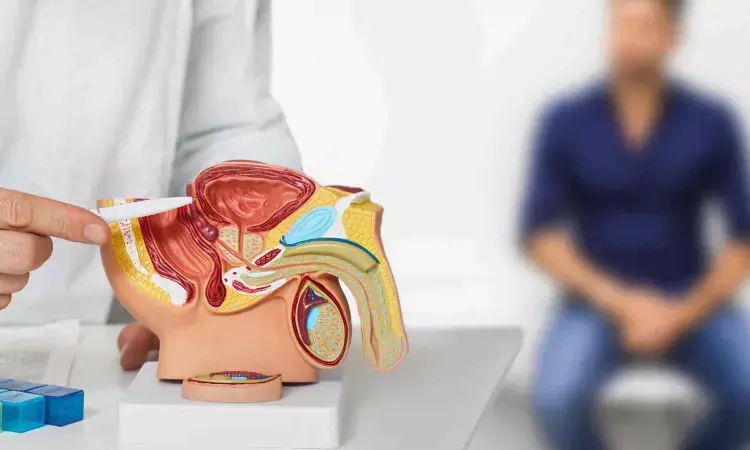- Home
- Medical news & Guidelines
- Anesthesiology
- Cardiology and CTVS
- Critical Care
- Dentistry
- Dermatology
- Diabetes and Endocrinology
- ENT
- Gastroenterology
- Medicine
- Nephrology
- Neurology
- Obstretics-Gynaecology
- Oncology
- Ophthalmology
- Orthopaedics
- Pediatrics-Neonatology
- Psychiatry
- Pulmonology
- Radiology
- Surgery
- Urology
- Laboratory Medicine
- Diet
- Nursing
- Paramedical
- Physiotherapy
- Health news
- Fact Check
- Bone Health Fact Check
- Brain Health Fact Check
- Cancer Related Fact Check
- Child Care Fact Check
- Dental and oral health fact check
- Diabetes and metabolic health fact check
- Diet and Nutrition Fact Check
- Eye and ENT Care Fact Check
- Fitness fact check
- Gut health fact check
- Heart health fact check
- Kidney health fact check
- Medical education fact check
- Men's health fact check
- Respiratory fact check
- Skin and hair care fact check
- Vaccine and Immunization fact check
- Women's health fact check
- AYUSH
- State News
- Andaman and Nicobar Islands
- Andhra Pradesh
- Arunachal Pradesh
- Assam
- Bihar
- Chandigarh
- Chattisgarh
- Dadra and Nagar Haveli
- Daman and Diu
- Delhi
- Goa
- Gujarat
- Haryana
- Himachal Pradesh
- Jammu & Kashmir
- Jharkhand
- Karnataka
- Kerala
- Ladakh
- Lakshadweep
- Madhya Pradesh
- Maharashtra
- Manipur
- Meghalaya
- Mizoram
- Nagaland
- Odisha
- Puducherry
- Punjab
- Rajasthan
- Sikkim
- Tamil Nadu
- Telangana
- Tripura
- Uttar Pradesh
- Uttrakhand
- West Bengal
- Medical Education
- Industry
Inflammation and metabolic syndrome linked to benign prostatic hyperplasia, reveals research

A new research paper was published by Aging (Aging-US) on January 6, 2025, in Volume 17, Issue 1, titled "The profile of oxidative stress markers (arachidonic and linoleic acid derivatives) in patients with benign prostatic hyperplasia in relation to metabolic syndrome."
A team of researchers, led by first author Weronika Ratajczak and corresponding author Olimpia Sipak from Pomeranian Medical University, examined how inflammation and metabolic health contribute to benign prostatic hyperplasia (BPH), a common condition that causes prostate enlargement in aging men, leading to urinary problems. Their findings suggest that inflammatory-related molecules in the blood may play a key role in BPH development, especially in men with metabolic syndrome-a group of conditions including obesity, high blood sugar, and high cholesterol.
BPH affects millions of men as they age, making urination more difficult and sometimes painful. While age and hormonal changes are known factors, the precise causes of prostate enlargement remain unclear. This study provides new evidence that inflammation, especially lipid-derived inflammatory markers, may be a driving factor behind BPH, particularly in those with poor metabolic health.
The research team analyzed blood samples from 219 men, including 144 with BPH and 75 without, measuring markers related to inflammation and oxidative stress. The results showed that men with BPH had significantly higher levels of pro-inflammatory molecules such as 12S-HETE and 5-HETE while having lower levels of anti-inflammatory substances like lipoxin A4. The imbalance was even more pronounced in men with both BPH and metabolic syndrome, indicating a possible link between poor metabolic health and worsening prostate conditions.
“Furthermore, there is mounting evidence that links the onset of inflammation with the development of prostate diseases, including benign prostatic hyperplasia and prostate cancer.”
Metabolic dysfunction and chronic inflammation may not only contribute to BPH development but also exacerbate its severity. Monitoring metabolic health could play a role in reducing the risk of prostate enlargement.
Future research is needed and may focus on whether anti-inflammatory treatments or lifestyle changes-such as improved diet, weight management, and exercise-could help slow the progression of BPH or reduce its symptoms.
Reference:
Weronika Ratajczak , Kinga Walczakiewicz , Maria Laszczyńska , Krzysztof Chmielowiec , The profile of oxidative stress markers (arachidonic and linoleic acid derivatives) in patients with benign prostatic hyperplasia in relation to metabolic syndrome, Aging-US, https://doi.org/10.18632/aging.206187
Dr Kamal Kant Kohli-MBBS, DTCD- a chest specialist with more than 30 years of practice and a flair for writing clinical articles, Dr Kamal Kant Kohli joined Medical Dialogues as a Chief Editor of Medical News. Besides writing articles, as an editor, he proofreads and verifies all the medical content published on Medical Dialogues including those coming from journals, studies,medical conferences,guidelines etc. Email: drkohli@medicaldialogues.in. Contact no. 011-43720751


